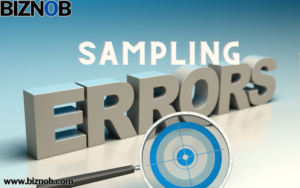What is the Series 65?
Series 65 Exam: The Financial Industry Regulatory Authority (FINRA) oversees the Series 65 test and securities license administration, which are necessary for anybody wishing to operate as an investment advisor in the United States. The North American Securities Administrators Association (NASAA) created the exam.
The Uniform Investment Advisor Law Examination, often known as the Series 65 test, covers a variety of subjects relevant to the function of a financial advisor, including laws, regulations, ethics, and other relevant issues.
Understanding Series 65
The goal of passing the Series 65 test is to certify applicants as investment adviser representatives (IARs) in the states where they now reside. When providing investment advice to clients for a charge, advisers acting in a fiduciary role are required by law to be IARs.
The only prerequisite for becoming an IAR is passing the Series 65 test, formerly known as the Uniform Investment Advisor Law test. To take the test, applicants do not need to meet any requirements and do not need the support of an investment business. However, they must pay the $187 exam cost and complete Form U10 and Form U4 for brokers.
There are 130 questions in the Series 65 test, covering subjects deemed essential to comprehend to advise customers on investments. The economic, financial, investment vehicle, investment strategy, analysis, and ethical problems are among them.
You will likely not need to get your Series 65 license if you do not charge a fee and do not often provide securities advice. The Series 3 National Commodities Futures (NCFE), Series 7 General Securities Representative (GS), and Series 63 Uniform Securities Agent State Law are additional qualifying exams that FINRA conducts.
After passing the Series 65 test, financial professionals are only eligible to work as investment advisors if they have obtained a state license and registration.
Exam Structure for Series 65
There are one hundred thirty multiple-choice questions on the Series 65 test. Examinees have 180 minutes to finish the test. To pass, candidates must correctly answer 94 out of 130 questions, or 72.3%.
Examiners must make an appointment at an approved testing facility to get an electronic calculator with four functions. Throughout the test, you may only use this calculator. Candidates also get pens and dry-erase boards. Any form of reference material is not allowed in the test room, and anybody found to be cheating or trying to cheat faces harsh consequences.
By submitting Form U4 and covering the $175 examination cost, an applicant’s company may arrange for the candidate to take the test. The candidate utilizes Form U10 to seek and pay for the test if they are not firm-registered.
Content of Series 65 Exam
On its website, NASAA offers the most recent information on the exam’s content. The format of the test is as follows:
Topics covered in Economic Factors and Business Information (15%, 20 questions) include financial reporting, quantitative techniques, economic indicators, monetary and fiscal policy, and fundamental notions of risk.
Features of the Investment Vehicle (25%, 32 questions): Cash and cash equivalents, fixed-income securities, equity and techniques of equity valuation, pooled investments, derivative instruments, and insurance-based products are among the topics covered.
Topics covered include individuals, business entities, and trusts; capital market theory; portfolio management styles, strategies, and techniques; tax considerations; retirement planning; ERISA issues; particular types of accounts; trading securities; exchanges and markets; and performance measurement. Client investment recommendations and strategies make up 30% of the questions.
Rules and regulations for investment advisers, investment adviser representatives, broker-dealers, and agents; ethical practices; and fiduciary obligations, including communications with clients, compensation, client funds, and conflicts of interest, are among the topics covered in Laws, Regulations, and Guidelines, including Prohibition on Unethical Business Practices (30%, 39 questions).
In response to changes in the tax law of 2018, NASAA changed the questions on the Series 65 test. The tax law changes are reflected in the tax-related exam questions on the test beginning in January 2019.
Getting ready for the Series 65
Several materials are available online and in print to aid with studying and getting ready for the Series 65 test. It is recommended that candidates spend 50–70 hours preparing for the test. In contrast to many other securities examinations, memorizing laws and regulations is the primary preparation method for the Series 65 test. Those who have trouble remembering things may need less preparation time than others. Still, certain test portions are more complex than others, particularly for those who have never worked in the securities industry.
Investopedia has also evaluated several of the top Series 65 exam preparation programs available here.
Comparing Series 65, Series 63, and Series 66
Three examinations are available from the NASAA: Series 65, Series 63, and Series 66.
- To assess a candidate’s suitability for commission- or fee-based investment advising services, such as becoming a financial adviser or registered investment advisor, NASAA developed the Series 65 test in 1989. When it was first introduced, its main topics of interest were the NASAA regulations, the Uniform Securities Act, and moral behavior in the securities sector.
- To certify applicants for employment in a state’s securities business and the sale of investment goods, including stocks, mutual funds, variable annuities, and unit investment trusts, Series 63 was created. Put another way, make trades instead of offering financial advice. The Uniform Securities Agent State Law Examination covers the fundamentals of state securities laws and regulations.
- Appropriately named the Combined State Law Exam, Series 66 is a more recent NASAA test incorporating content from Series 63 and Series 65. In addition to the Series 66 test, candidates for the Series 7 license must pass the FINRA Series 7 licensing exam. While the Series 7 is not required for the Series 63 or 65, many people will still need it to operate lawfully.
- You may provide financial advice if all you have is a Series 65 license, but you can’t manage portfolios, sell securities, or execute transactions on behalf of customers. To get this, you must also pass the more difficult FINRA Series 7 test.
Does the license for Series 65 expire?
No, as long as you continue to operate actively in the financial services sector, your Series 65 license is valid. Your new company may demand that you retake the Series 65 test if you leave the sector for over two years.
Is a sponsor required for Series 65?
No. There is no need for a member company to sponsor a candidate to take the Series 65 test.
What Is the Price of the Series 65 Exam?
Currently, the test fee for the Series 65 is $187. A passing score of 72% is required, although you may repeat the examination after 30 days by paying the exam cost.
Does taking Series 65 Prerequisites Help Me Become an IAR?
Sure, but you’ll have to take the Series 66 and 7 tests instead.
Is the Series 65 Exam Complicated?
Although the NASAA does not publish official pass statistics, test preparation programs estimate that between 65 and 70 percent of test takers succeed.
The Final Word
The Uniform Investment Adviser Law Exam, or Series 65, is a test that examines a person’s knowledge and proficiency in discussing broad financial topics and offering investment advice to customers. Candidates who pass the Series 65 exam demonstrate their understanding of financial principles and are eligible to provide investment advice for a fee. According to most state securities authorities, Series 65 is now the prerequisite for becoming an investment adviser representative (IAR).
Conclusion
- To practice, financial professionals in the United States are often required to pass licensure exams.
- Passing the Series 65 exam in most states enables an investment professional to act as an Investment Adviser Representative (IAR).
- State and federal securities laws, investment advisor rules and regulations, ethical standards, and fiduciary duties—including client interactions, remuneration, client money, and conflicts of interest—are covered.
- You have 180 minutes to complete the exam’s 130 multiple-choice questions with a passing grade of at least 72%.
- To get a full license to sell securities and complete transactions, even if you passed the Series 65 test, you may also need to take the FINRA Series 7 exam.















































